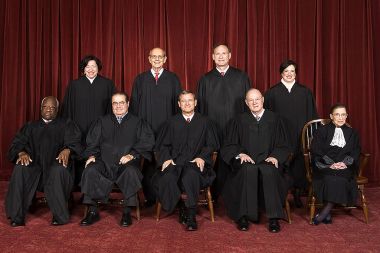Arizona church's right to publicise worship scheduled to go before US Supreme Court

A lawsuit between a Gilbert, Arizona church and town officials has reached the Supreme Court level.
The justices decided last week that it will hear the case of Good News Community Church Pastor Clyde Reed vs Gilbert-- a dispute over the church's methods of publicising its worship services.
Pastor Reed said a 2008 town ordinance that governed where signs can be placed, the size of the sign, and how long the sign can be displayed, was discriminatory towards religious messages.
The ordinance's categories were based on content, and church signs were grouped under the "Event" category. Alliance Defending Freedom, representing Pastor Reed, contended that event signs received "far worse treatment" than political signs or other types of messages.
The White House's top Supreme Court lawyer, Solicitor General Donald Verrilli, said that the ordinance violated freedom of speech protections because it favoured one type of speech over another.
Gilbert's lawyers asked the High Court not to hear the case in part because a less restrictive ordinance was passed in 2011. The 9th US Circuit Court of Appeals ruled in the city's favour in February 2013.
The town has received support from the National League of Cities, which said that the ordinance was legal partly because its restrictions were the same for civic groups and all other organisations that wished to advertise in the city.
The Supreme Court has agreed to hear a one-hour argument in the church's appeal. A decision is expected by the end of June.
The last case the justices heard involving religion was in June 2014, when the Court ruled in favour of Christian liberal arts school Wheaton College in a debate over birth control access for their employees.
The Court affirmed that the Obamacare mandate of free contraceptives does not apply to employers who demonstrate that the law violates their religious beliefs and is a burden. The 5-4 ruling maintained that women's access to birth control would not be restricted by the decision.











